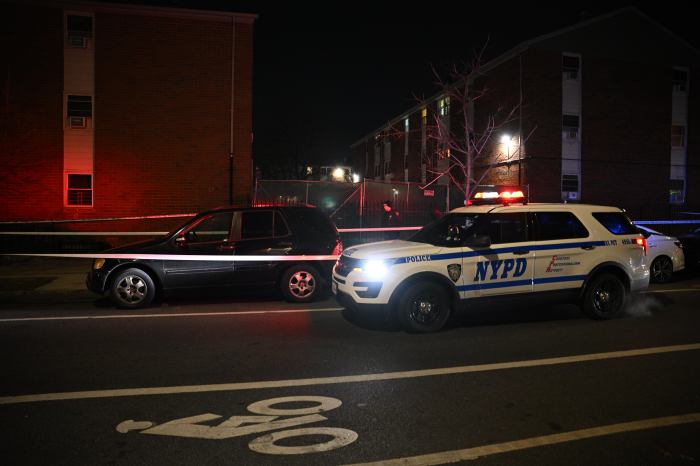The big birds at JFK Airport and the smaller variety that inhabit the Jamaica Bay Wildlife Refuge immediately adjacent to the airport can make for a deadly combination.
Last year over 100 incidents occurred where birds collided with planes or interfered with runway operations. At times these incidents were serious enough to ground aircraft.
The proximity of the sprawling airport to one of the largest and most unique urban wildlife preserves has posed enormous difficulties over the years and it has pitted airport authorities against environmentalists in a battle over human safety versus bird survival.
The Port Authority, manager of JFK Airport, iscurrently seeking to hire a full-time biologist to come up with a solution to the dilemma.
Over 325 species of birds have been recorded in the marshlands and islands that make up the wildlife refuge.
Among the inhabits are 3,500 laughing gulls, swallows and egrets. These birds at times are prone to cruise the runways for food, a situation that is potentially deadly for jets taking off and landing.
This past October, a Canadian goose got sucked into one of the three engines of an American Airline jet bound for Bermuda. JFK traffic controllers ordered the jet to dump 3,200 gallons of fuel over Queens and then make an emergency landing. The geese and migratory laughing gulls head for the JFK area every spring and Port Authority officials are desperately searching for ways to prevent a disaster in the future.
"JFK is far and away the facility with the most problems with bird strikes in the entire nation," said Steve Garber who for the past four years has headed up the PA’s bird-control unit. The position is now open at a salary of $50,000 which includes managing a full time staff of 13. In total the PA spends $800,000 a year on its bird control problem. A recent lawsuit was settled when the PA paid Air France $5.3 million for repairs to one of its Concorde jets that had struck a flock of geese. The Federal Aviation Administration estimates that bird collisions cause more than $300 million in damages to jets each year. "We’re just lucky that this problem hasn’t resulted in a fatal crash," one PA official at JFK Airport told The Queens Courier. "It’s a lot more dangerous than most people want to realize."
Port Authority officials are hopping that a new biologist can bring some new ideas to help solve the bird-control problem. Among the methods the PA has tried in the past included spreading birth control pills in the marshes, using noise cannons and firing blasts to frighten the birds away and deploying predatory falcons. The PA has also tried shooting the birds in flight, a measure that brought the ire of environmentalists on the PA.































